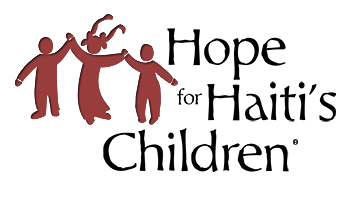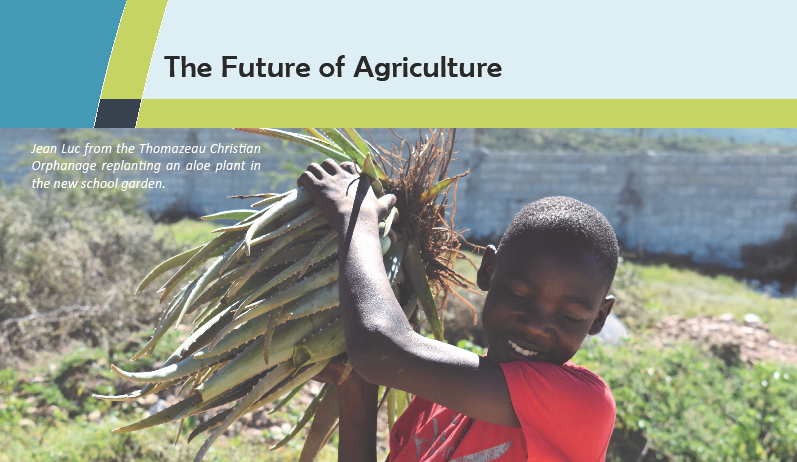The issue of food security is still prevalent in Haiti even as the world becomes increasingly more modern. Due to deforestation and dry conditions, food is difficult to grow and erosion causes soil to wash into the oceans. Thankfully, with the help of agriculture partners, HFHC is training students on how to combat this national concern.
Through gardening programs at both the Cazeau and Thomazeau Christian Orphanages as well as the Thomazeau Christian School, students in Haiti are learning and implementing a number of sustainable practices. To use the space wisely at Cazeau, they have 3 small plot gardens where they are growing many vegetables, including corn, eggplant, and spinach. Since water can be expensive, they have created a rainwater harvest system to use a natural, renewable resource.
At Thomazeau, a rainwater capture system has also become increasingly beneficial since this rural area is usually very arid, but does have periodic thunderstorms. The system is able to capture around 700 gallons of water in an hour when it rains. The students in Thomazeau have also been planting trees and tending to a garden—growing beets, carrots, and sweet pepper. Sometimes, pests or other problems affect the gardens. These instances allow students to learn about what to do when problems occur.
Both Cazeau and Thomazeau have seen success with the formation of a Garden Club and with students taking initiative by starting their own micro gardens. HFHC hopes to have the support and resources to create agricultural initiatives in each of the ten communities where the sponsored schools reside. Allowing more students to learn about sustainability and food growth is a first step in the direction of solving the food security crisis.

